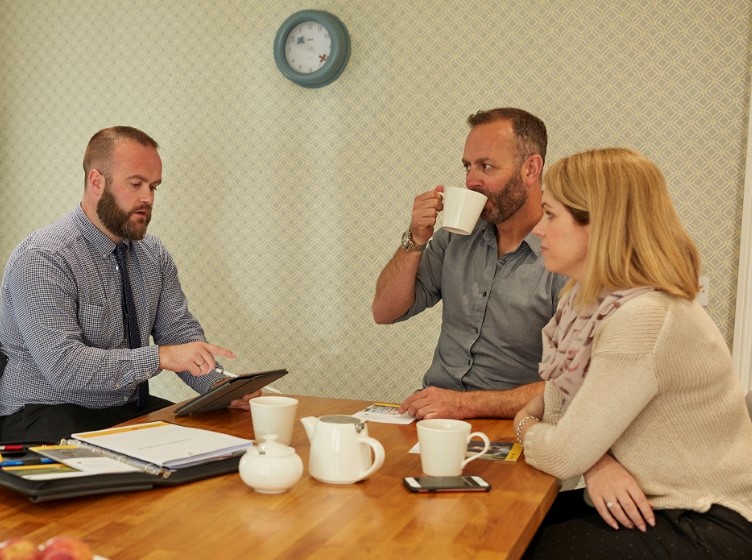Get the best income in your retirement

Retirement is a time to reap the rewards of years of hard work and do more of the things that you love, whether that’s getting stuck into a favourite hobby or spending time with your grandchildren.
To make this a reality, you need to prepare as well as you can financially. This isn’t always easy, as pensions and retirement planning can be complex.
To help you ensure you’re on the right track, below are seven of our top tips for pension planning, which are particularly pertinent for people in their forties or early fifties. Remember, expert help is available to you from a professional financial adviser, should you need it for some of life’s bigger decisions.
1. Work out your minimum desired retirement income
Do you know how much money you’ll need to live on in retirement?
As well as funding your expected lifestyle, be sure to budget for any specific goals like home improvements, holidays, or helping children to get on the property ladder.
Of course, this may change, so be prepared to regularly review your plan for achieving this lifestyle.
2. Take stock of your pension savings
How much, if anything, have you saved towards your pension so far? Also, what can you expect to receive from the state?
Make sure you have identified all pensions plans you might have had from previous jobs. The government’s Pension Tracing Service can help you search for lost pensions and you can also check your State Pension forecast.
If you’ve accumulated several different pots, it may be worth combining them , but seek financial advice before you make a decision.
Also, when taking stock of your retirement savings, don’t forget to consider any other income sources you might have, such as ISAs or rental properties.
3. Decide on your retirement journey
While traditionally people may have abruptly retired and stopped working entirely, there are actually several different ways to approach retirement. You could, for example, reduce the hours you work first, while some people even choose to start their own business.
4. Consider your attitude to risk
Understanding your attitude to risk will help you make the right financial decisions when saving for your retirement.
So, consider, what’s your risk appetite? In other words, to what extent could you tolerate swings in the value of your investments. Consider too your risk capacity, which is how much of a financial loss you could bear.
Your attitude to risk will also impact how you eventually decide to take the money from your pension pot. There are several ways you can do this, ranging from buying an annuity to taking a lump sum and keeping the remainder of your pension invested.
5. Make the most of help from the tax man
When saving for your pension, it’s important to ensure you always take advantage of any tax relief.
While you’re still working you can pay money into your pension up to the level of your earnings, capped at £60,000 each tax year. For every £80 you pay in, the tax man will add another £20. If you pay 40% tax, you can reclaim up to another £20 direct from HMRC.
The tax treatment of pensions depends on individual circumstances and may change in the future.
6. Use your pension allowances from previous years
If you want to put more than £60,000 into your pension in this tax year, provided you have earnings above that amount, you may be able to make use of unused allowance from the previous three years.
If you already have a pension with us you can request to make a single payment into your pension plan.
7. Avoid costly pension issues
Some older pensions have valuable guarantees built in that will be lost if you transfer them away from your current provider. Get these checked by a financial adviser before making any decisions.
Next steps . . .
There are two ways you can put these tips into action with us, by making decisions about what is best for your circumstances with the help of an NFU Mutual Financial Adviser, with our advised service, or by making those decisions yourself, through our self-investor service.
Our advised service provides the help of NFU Mutual Financial Advisers who can help you plan your retirement based on your personal circumstances. Our self-investor service is designed for people who have carried out an assessment of their own personal circumstances and know the type of pension they want and how much they would like to invest.
You should be aware that the value of investments and pensions can fall and you may get back less than you invested.
The tax treatment of pensions and investments depends on individual circumstances and may change in the future.
NFU Mutual Financial Advisers advise on NFU Mutual products and selected products from specialist providers. When you contact us, we'll explain the advice and services we offer and the charges.
Financial advice is provided by NFU Mutual Select Investments Limited.
